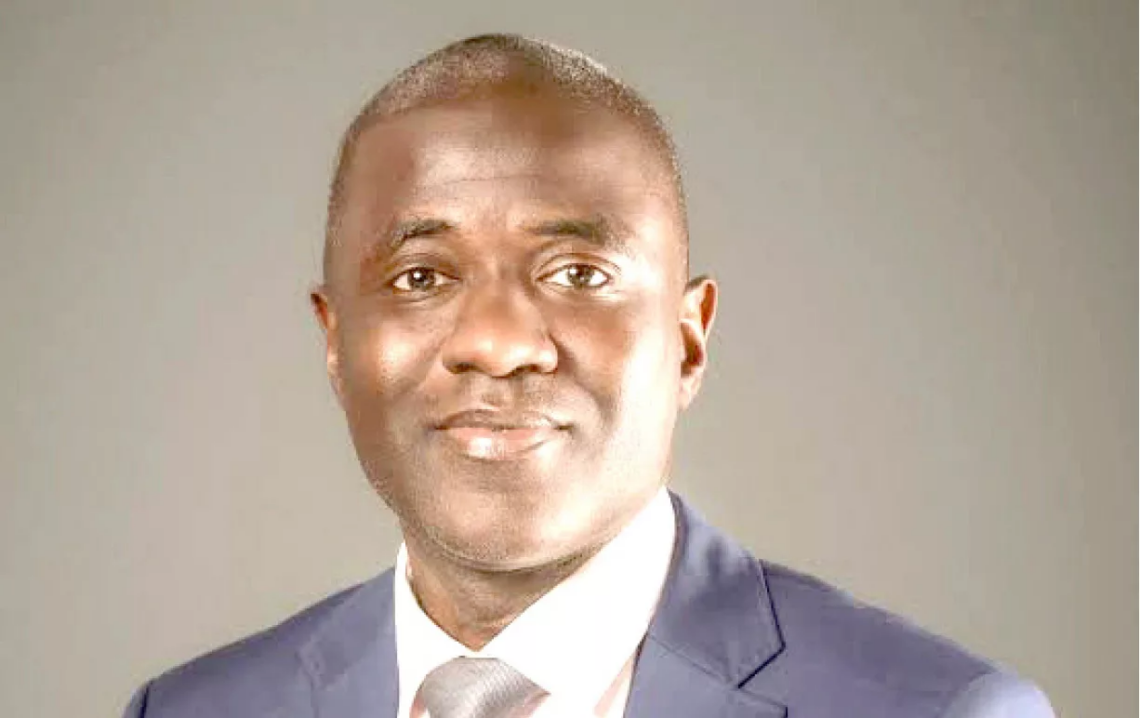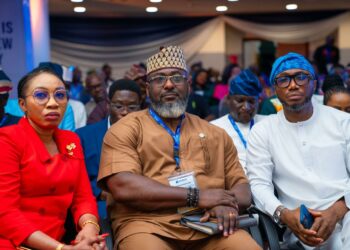Last week, the media was awash with reports of telecom operators calling for an increase in call, data, and SMS tariffs. Their justification for the renewed call was to cushion the effect of high operating costs which have marred their businesses in recent times.
Speaking on their behalf, the chairman of the Association of Licensed Telecommunications Operators of Nigeria (ALTON) Engr. Gbenga Adebayo, told NATIONAL ECONOMY that the pace of growth and the rate of adoption of telecoms solutions in Nigeria has been revolutionary.
“Almost all of us today are reliant on the network connectivity that it has enabled in different shapes and forms. From the simple need to communicate with loved ones, to the digital platforms that enable our access to and consumption of entertainment, financial products, and other critical services. Our reliance on these systems is becoming more and more acute, whether it is citizens, governments, or corporations.
“System downtime is increasingly disruptive and offline manual redundancies are often in the advanced stages of being phased out. The pace of this transition is not slowing down. With the core infrastructure in place, innovation is driving the exponential growth of services that ride on it. From the fully adopted social media that has changed the way we interact, to the emerging Artificial Intelligence (AI) revolution,” Adebayo explained.
While this innovation is enabling exciting new possibilities, there is a tendency to focus on those opportunities, to the detriment of the core infrastructure on which it rides, the chairman advised, adding, “We must retain a focus on the optimisation of that infrastructure and enable continued investment in its development. We have seen how the transition from 2G, through to 3G, 4G, and 5G have each enabled the development of more and more sophisticated solutions.”
He, however, lamented that over the last few months operators have begun to see the challenges. Citing an example, he said, “Both MTN and Airtel have declared significant foreign exchange (FX) losses in Nigeria, and the stress is not linked to them alone. The entire ecosystem is battling with a range of challenges that must be addressed.
“If we fail to do so, the downstream impact on innovation will be severe. Telecoms infrastructure requires a base level of investment to maintain its current capabilities, and significant additional investment to expand and grow. It is capital intensive and that capital has to be generated through sustainable business models.”
Speaking on other challenges, Adebayo said recent financial losses are directly linked to the cost of operating towers that rely on inputs like diesel, which have increased significantly as the Naira has depreciated.
The provisions large telecom companies have had to make, and the consequent losses and impact on their reserves is a red flag, the chairman posited.
“It tells us that business as usual is not sustainable. If we continue as we are, then those companies will struggle to continue to invest in and maintain existing services. But those costs are not the only challenge. General cost inflation, multiple taxation, regular and damaging vandalisation of infrastructure, and the costs associated with regulatory compliance all help contribute to the high cost of operations. We cannot continue to follow a path that asks those companies to simply accept these rising costs. It is no longer sustainable, and we have reached an inflection point.
“This is a critical moment for the industry. How we approach and resolve it will define the future of Nigeria’s digital economy. If you want to be able to enjoy the benefits that digitisation brings. If we want the infrastructure that enables AI and helps us drive growth, then we must take action now.”
He, however, harped that cost-reflective tariffs, like it or not, are simply non-negotiable, adding that, “We have seen the impact of price controls in other segments of the economy, like power. If providers cannot operate sustainable business models, then they stop investing. When that happens, the existing infrastructure starts to crumble.
“For power, a consumer can choose to take ownership of the solution by buying a generator, or a solar panel. For fuel, the government can step in as the provider of last resort and manage a subsidy regime that mitigates the impact on the population. Those options are not available in the telecoms sector. There is no self-help solution.”
While recognising the financial stress that Nigerians are experiencing today, Adebayo averred that Nigerians are still able to enjoy the benefits that connectivity brings, at the price they paid before these challenges became so acute.
“Imagine a future in which the gains of the last twenty years are reversed. Nigeria and Nigerians simply cannot afford it. The pain that we would feel under those circumstances would be exponentially worse. We need to find a long-term, sustainable, and manageable solution to this problem. Prices will need to rise, but action needs to be taken in a measured way, through sustainable conversations and partnership with the government. It is time to address this head-on,” he affirmed.
In the same vein, the president of, the Association of Telecommunications Companies of Nigeria (ATCON), Tony Izuagbe Emoekpere, reiterated that telecommunications infrastructure development requires substantial investments in network expansion, maintenance, and technology upgrades.
Despite the adverse economic headwinds, Emoekpere averred that the telecommunications industry remains the only industry yet to review its general service pricing framework upward in the last 11 years, primarily due to regulatory constraints. “For a fully liberalised and deregulated sector, the current price control mechanism, which is not aligned with economic realities, threatens the industry’s sustainability and can erode investors’ confidence,” he affirmed.
The president therefore called upon the government to facilitate a constructive dialogue with industry stakeholders to address pricing challenges and establish a framework that balances consumers’ affordability with operators’ financial viability.
Rules Must Be Followed, NCC Reacts
The Nigerian Communications Commission (NCC), while acknowledging that the operators may have a legitimate reason for requesting an increase in voice and data tariff, had over time reiterated that there would not be a cost review in the telecom sector until empirical research was done to determine whether the increments are necessary.
According to the Commission, “Consistent with international best practice and established regulatory procedures, the NCC ensures its regulatory activities are guided by regular cost-based and empirical studies to determine the appropriate cost (upper and floor price) within which service providers are allowed to charge their subscribers for services delivered.
“The Commission ensures that any cost determined, as an outcome of such transparent studies is fair enough to enhance healthy competition among operators, provide wider choices for the subscribers as well as ensure sustainability of the Nigerian telecoms industry.
“For the avoidance of any doubt, and contrary to MNOs’ agitation to increase tariffs for voice and Short Messaging Services (SMS) by a certain percentage, the Commission wishes to categorically inform telecoms subscribers and allay the fears of Nigerians that no tariff increase will be effected by the operators without due regulatory approval by the Commission.
“It is noteworthy that tariff regulations and determinations are made by the Commission in line with the provisions of Sections 4, 90, and 92 of the Nigerian Communications Act (NCA) 2003, which entrusts the Commission with the protection and promotion of the interests of subscribers against unfair practices including but not limited to; matters relating to tariffs and charges.
“However, while there could be justifiable reasons for MNOs’ demand for tariff increase, it should be noted that they are not allowed to do such either individually or collectively without recourse to NCC, following the outcome of a cost study. This is not the case for now,” the NCC stated.





